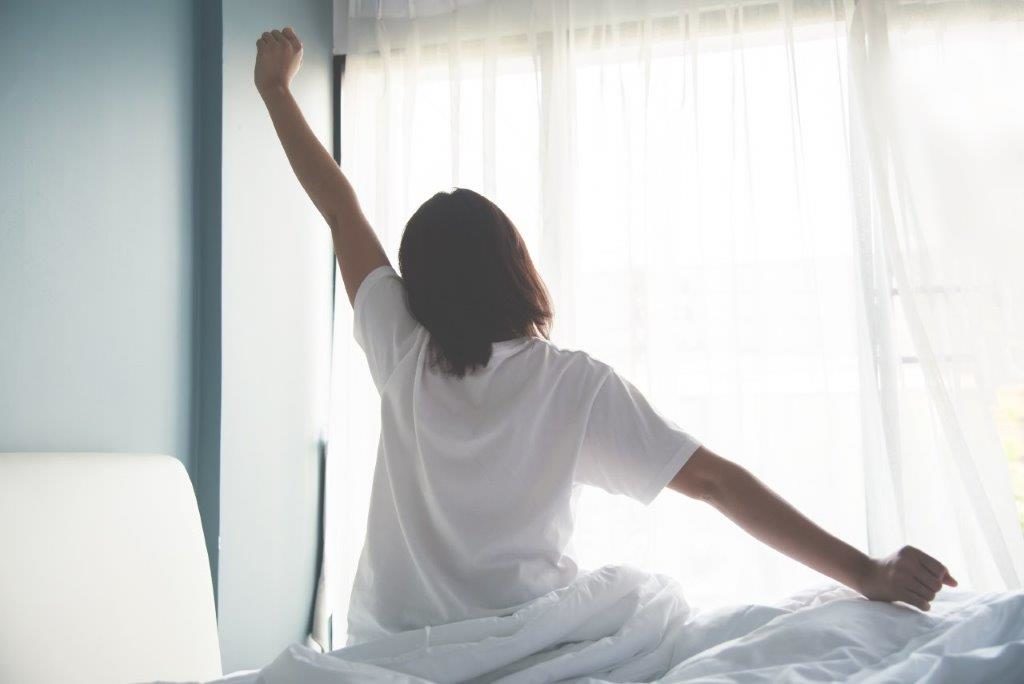
Waking up in winter: How to avoid late lie-ins
Waking up in the winter can feel difficult some days. Well, most days, if we’re being honest! It’s dark, and everything outside the duvet is freezing cold; it’s no surprise that we just want to stay in bed.
Of course, this is not feasible for the most part. You’ve probably got a job to go to, and they’re not going to let you roll in late just because you fancy a lie-in. So what can you do to get up in the winter mornings, even when it’s difficult? Well, one thing you can do is understand precisely why waking up is so hard.
It turns out that it’s not really to do with the cold. The main reason you struggle to get up is because of the shorter days that winter brings, as the late sunrises mean you’re probably waking up while it’s still dark.
The body’s circadian rhythm, which regulates how tired you feel and when you sleep, responds to light more than anything. That’s why you’re less likely to feel tired in bright sunlight, but when it’s dark outside, your eyelids begin to droop. The dark winter mornings therefore make your body feel much more tired, even though the time you wake up hasn’t changed.
So what can you do about this? If you’re sick of struggling to get out of bed in the winter, these tips should help you regain control of your sleep patterns and enable you to avoid lengthy lie-ins.
Stick to a sleep schedule
This isn’t exactly a fun option, we know, but setting a sleep schedule is a good way to make sure you’re able to get up in the morning. Remember the circadian rhythm we mentioned earlier? Well, it’s something you can influence by keeping to a regular routine.
If your body expects to go to sleep and wake up at the same times each day, it will start to make these things easier for you. You should be aiming for between seven and nine hours of sleep each night, so work out what time you need to be out of bed in order to get to work on time, and work backwards from there.
The hard part is sticking to this schedule, which means no lie-ins at the weekends or late nights binge-watching TV shows. It’s fine to have the occasional night out of course, but because this will be a disruption to your routine you might find it’s even harder to wake up afterwards.
Make sure you sleep well
It’s a lot easier to get up if you’re well-rested, and this will help you a lot on cold winter mornings. Of course, this is easier said than done. However, there are some things you can probably improve in order to make sure you’re sleeping better overall.
For example, do you use your smartphone in bed? A lot of people do, but the glare from the screen disrupts your body’s circadian rhythm. We mentioned earlier that it responds strongly to light, so by using your phone you’re essentially confusing your body as to whether it’s day or night time. This then leads to you having a bad night’s sleep.
Alcohol can have similar effects. You might find that a nightcap helps you get to sleep, and you’re probably right, but it will lead to you having a restless night. Alcohol is also a diuretic, which causes you to need to urinate more frequently. Drinking too much means you’ll have to get up in the middle of the night to go to the bathroom.
Simulate the sunshine
As we mentioned earlier, the dark mornings are a major reason why it’s so hard to get up during the winter. However, while there’s no sunlight outside, you can still have the next-best thing. You can purchase alarm clocks that wake you up with bright light, instead of a noise.
Not only is this a more pleasant way to wake up, especially if you’re growing to hate the screeching sound of your alarm, it’s also much better for your circadian rhythm. The light convinces your body that it’s morning, making you feel well-rested and more awake than if you were getting up to a dark room.



